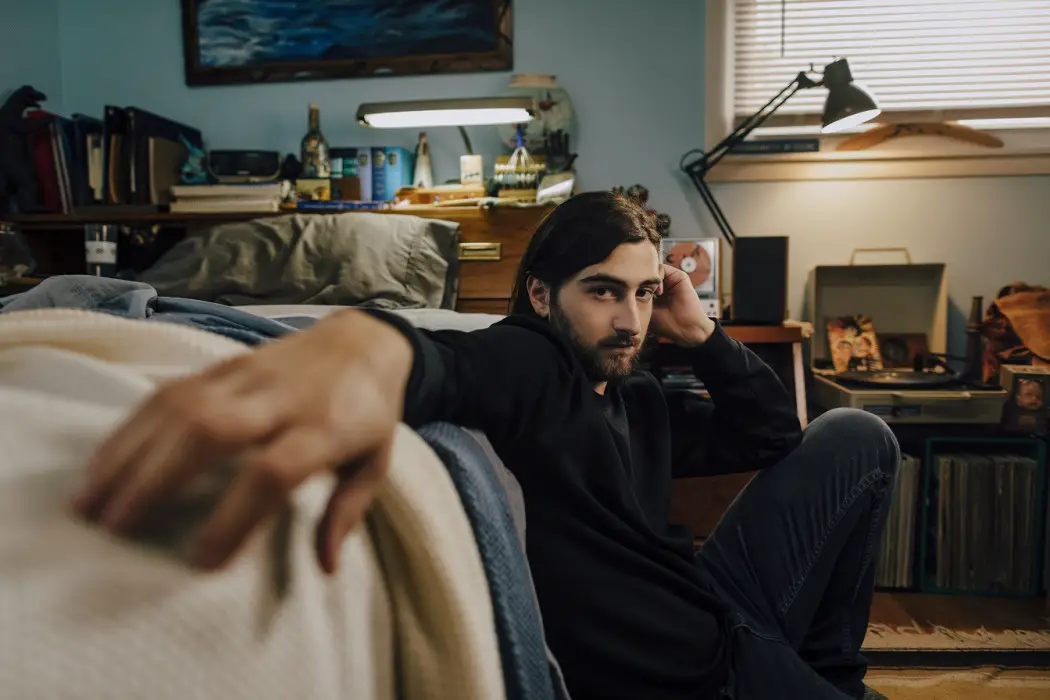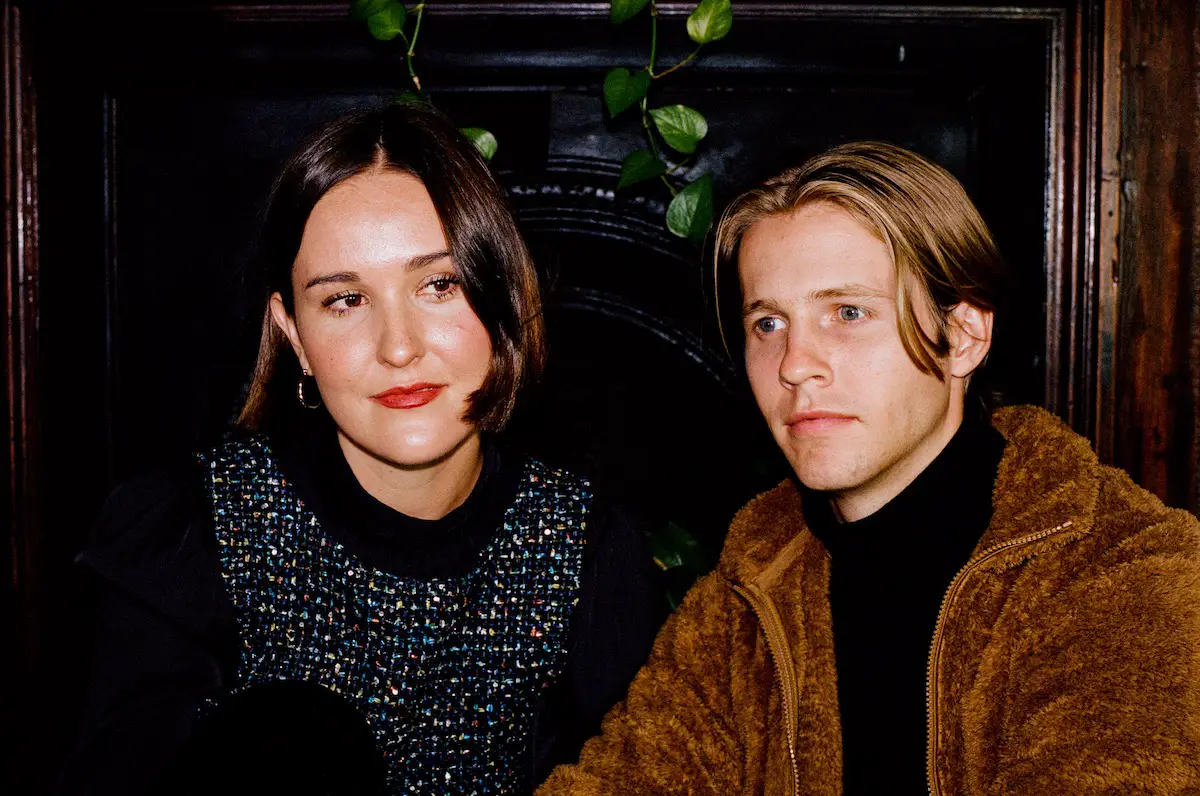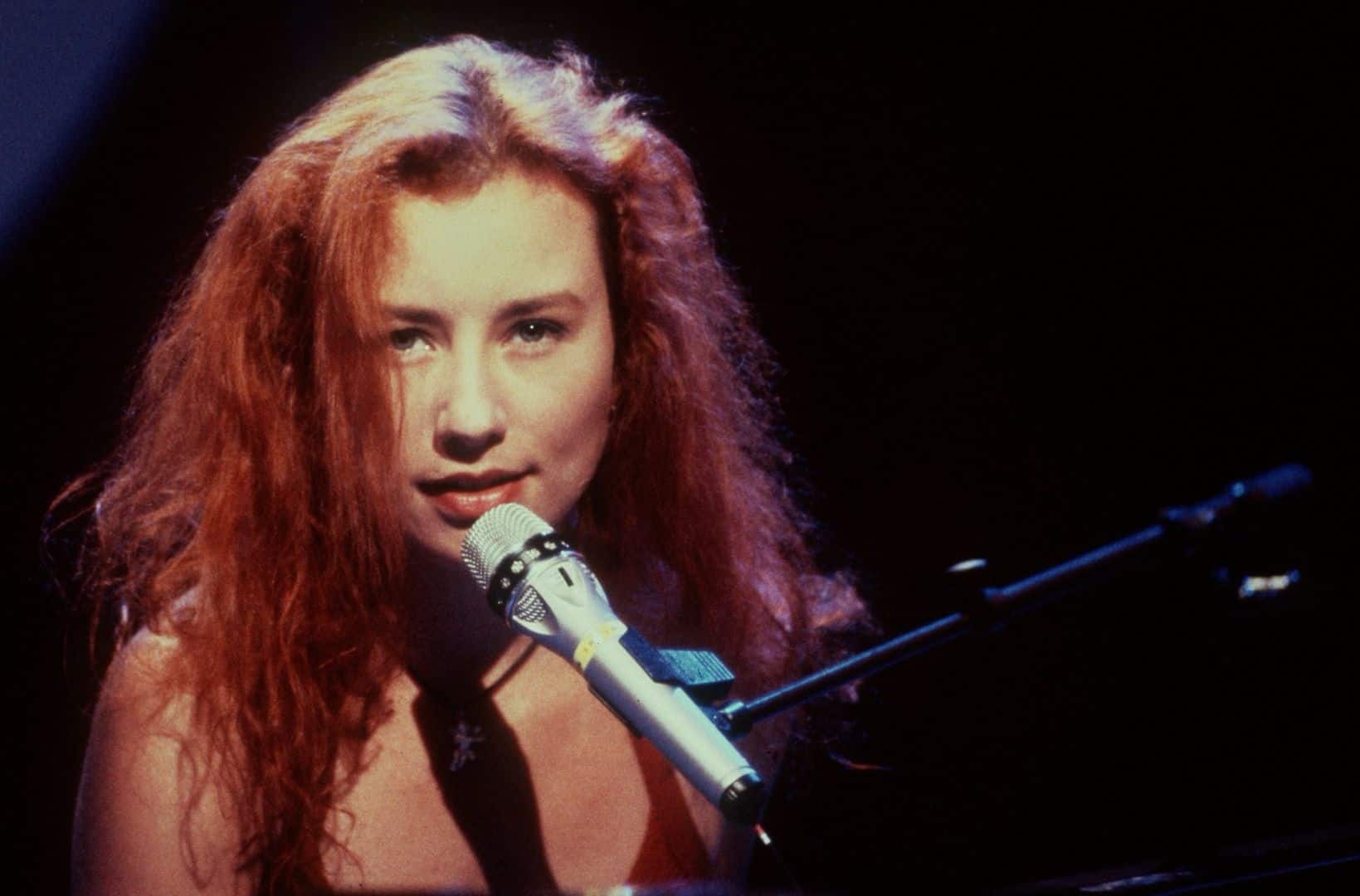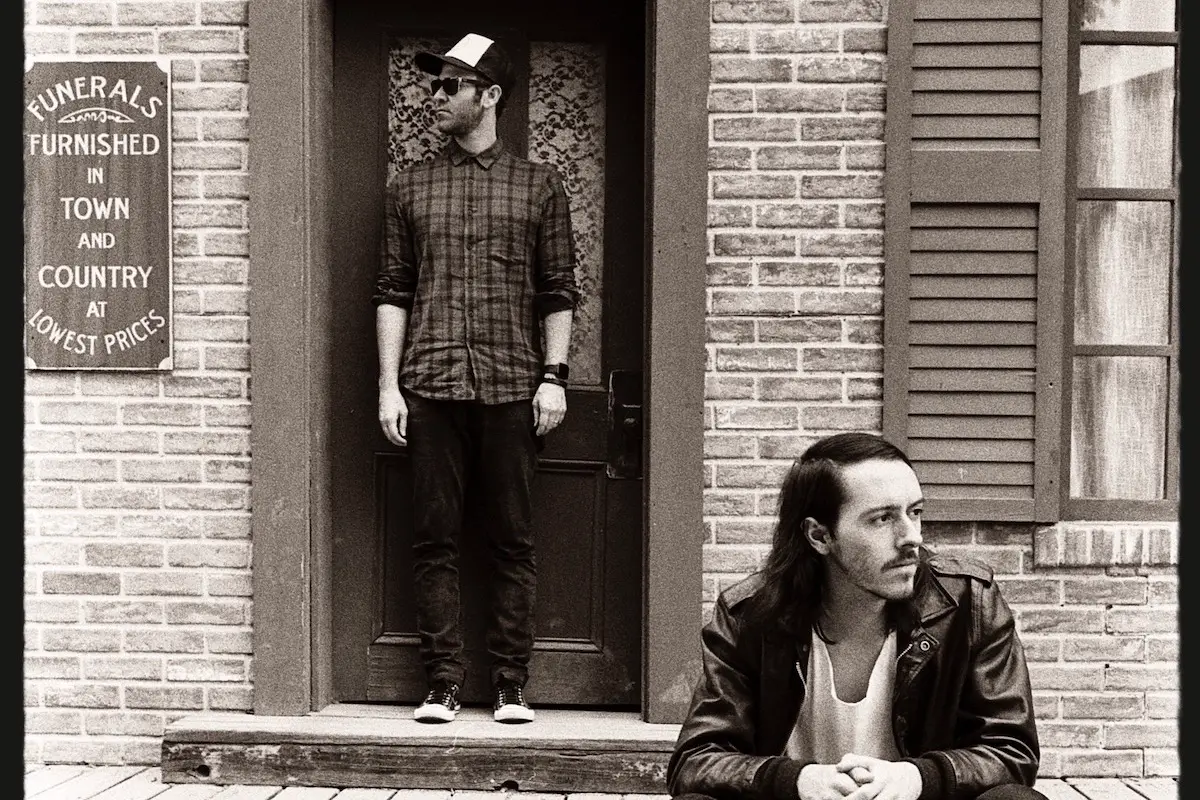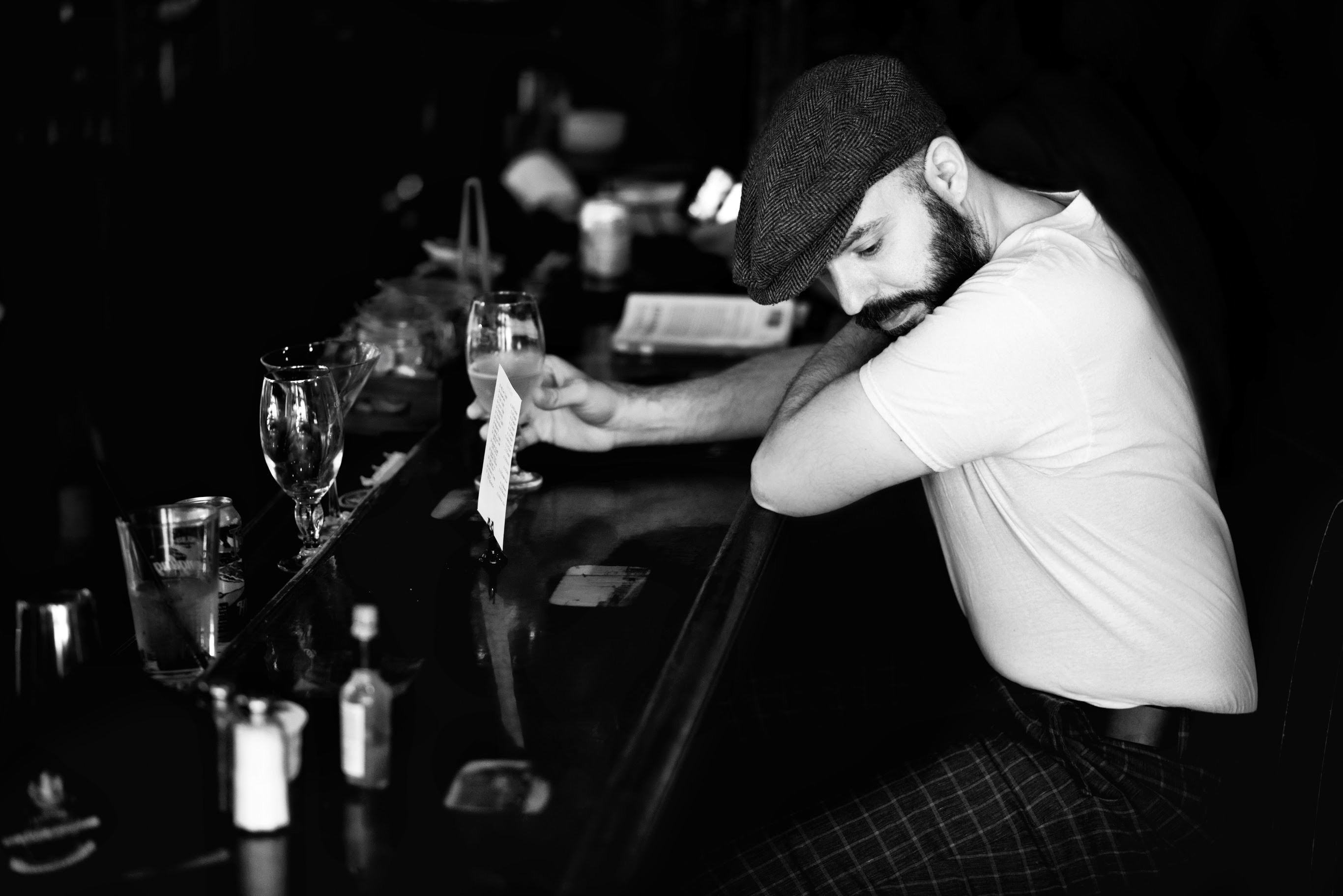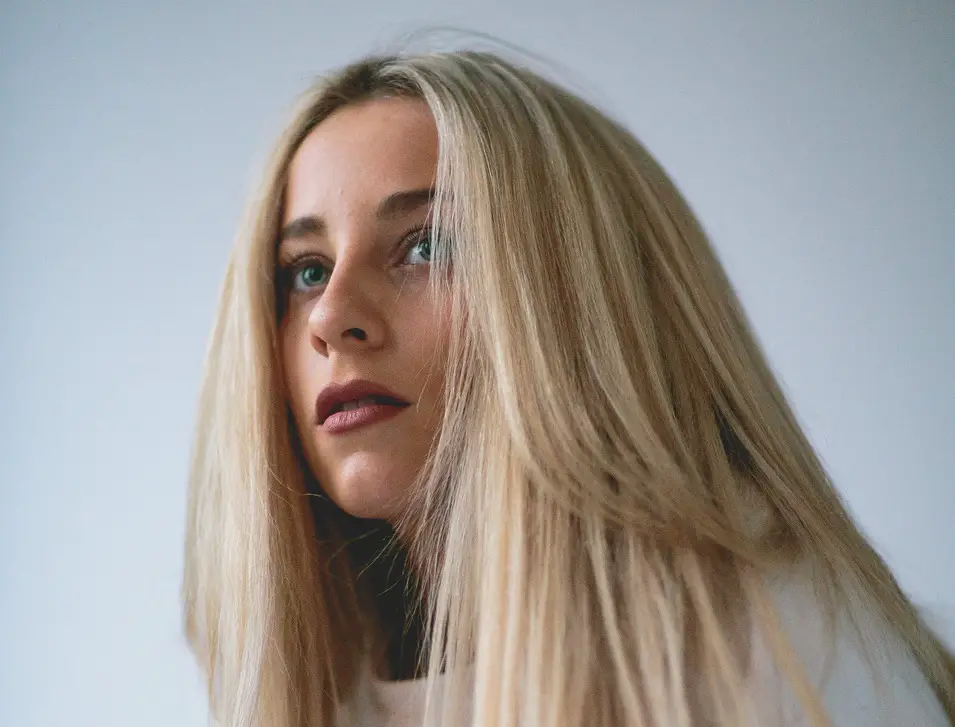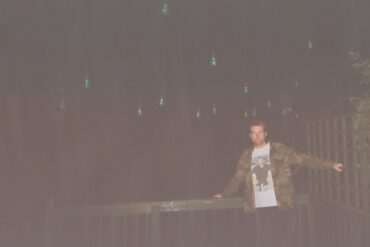Noah Kahan explores the complex reality of living out his dreams in an intimate dive into his songs, his story, mental health, and the music industry.
— —
Noah Kahan is living out his dreams a little earlier than most. Currently on tour supporting his idol James Bay, the 22-year-old has had his music streamed hundreds of millions of times around the world, and he’s performed his songs on sold-out stages throughout the United States and beyond.
That’s a lot for anyone to process, especially when your home town has a population of 1,000.
For Kahan, music is his inspiration, his passion, and his therapy. “I love it, and I love the way it makes me feel,” he says with a grin. “It’s the only thing I’ve ever heard or seen in my life, that can completely take me somewhere else.”
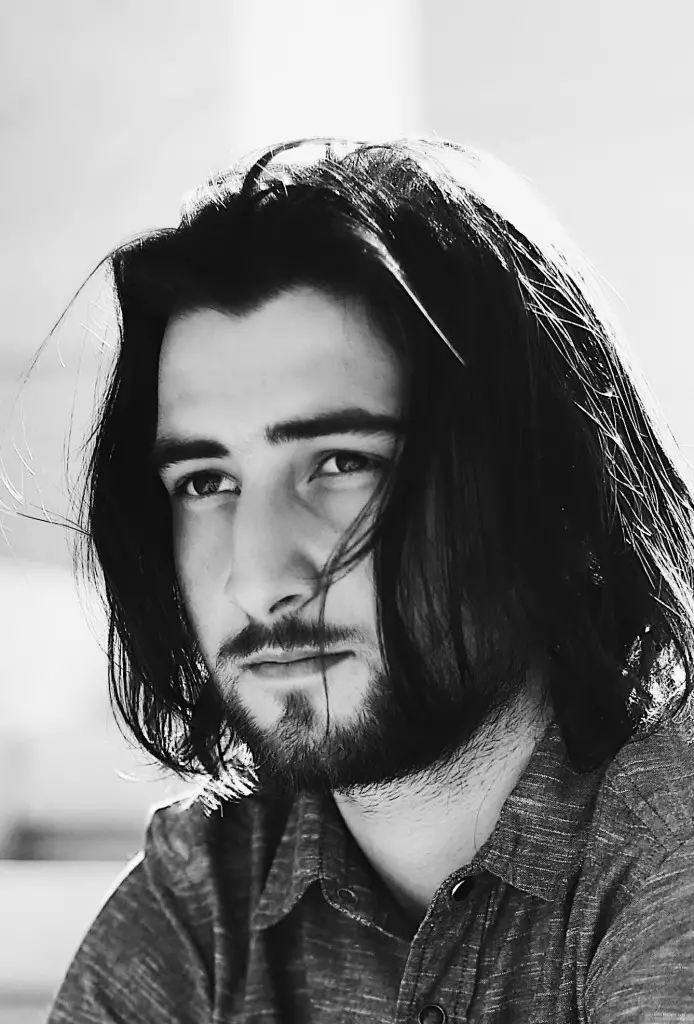
Born and bred in Strafford, Vermont, Kahan permanently (and with full parental support) deferred his acceptance to Tulane University at 18, signing a major label deal with Republic Records instead. The ensuing four years have been a whirlwind and a rollercoaster for the budding singer/songwriter as he navigated the precarious, uncertain, and often lonely waters of being a developing artist.
“I just thought that if you got a record deal, bang! the record’s out and you’re touring the world!” he recalls. Of course, “that’s not at all what happened. I was literally just at home in Vermont, and I would go for two weeks at a time, every month or so, to Nashville or L.A. to write. I would do “writes” and make music, but I was kind of at home and I was really lonely, and really depressed.”
Fortune struck Kahan upon the release of 2017’s debut single “Young Blood,” a high-flying pop song rife with catchy melodies and haunting vulnerability. “That kind of kickstarted things for me,” Kahan says of his debut. “It really gave me a platform to continue to release music and be a professional songwriter.”
Kahan’s artistry stands out for his keen sense of pop melody, his strong, smooth singing voice, and above all, his unfiltered honesty.
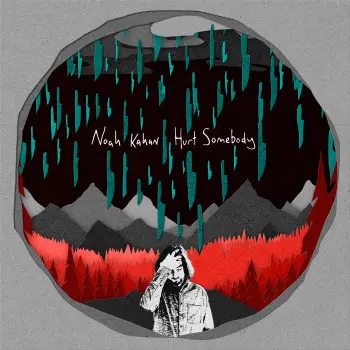
“I think what my value is, is my ability to write honest music,” he reflects. “My ability to write songs from the heart is my greatest asset.”
Noah Kahan’s career has been on an upward trajectory ever since releasing “Young Blood.” His debut EP Hurt Somebody asserted his promising talents as “one of 2018’s rising pop singer/songwriters,” serving as a “stirring reminder that great songwriters make great songs.” (Atwood Magazine, 2018) The EP’s title track “Hurt Somebody” (featuring Julia Michaels) has racked over 200 million streams, going triple platinum in Australia and gold in six other countries.
Kahan’s success has been thrilling and overwhelming; in the midst of all this, the young artist found himself struggling to balance music with his home life, friends and family – a subject he went to great lengths to capture in his new song “Mess,” the lead single off his forthcoming debut album.
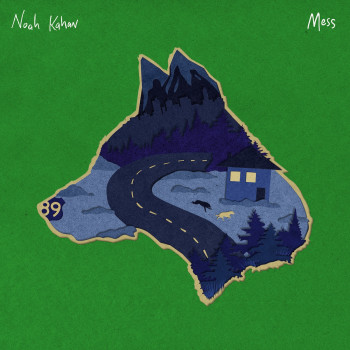
Personal struggles like this one are prevalent throughout Kahan’s music: Many of his songs deal with the ups and downs of relationships, his own fears, anxieties, and doubts about himself and the world. Kahan is very open about his depression, and the fact that music is as much self-expression and art for him as it is real therapy.
“I think writing songs and seeing people connect with them, and having people reach out to me about how they feel, is super therapeutic,” Kahan says. “It’s really cool to see people feel better about themselves through my music, especially because I was trying to do the same thing for myself. It’s cool to have that be worthwhile for other people and not just me.”
Kahan’s story is indisputably one of success, and the best is still to come.
Right after his tour with James Bay ends, he’ll be flying to Europe to spend the month of April supporting Apple’s global Up Next Artist Dean Lewis. Later this summer, he will finally release his debut album.
Onstage, Kahan jokingly introduces himself to audiences as a “Jewish Ed Sheeran.” Offstage, he’s more of a cross between Ben Savage, Jack Antonoff, and Leonard Bernstein: Young and excited, a ball of drive and nerves, hopelessly self-aware and so full of raw talent.
Noah Kahan sat down with Atwood Magazine in-between two nights at New York’s Beacon Theatre to share his full story, dive deep into his songs, discuss music and mental health, and offer some listening recommendations (shout-out to Mt. Joy). Get to know this rising artist-to-watch in our exclusive interview as he explores the complex reality of living out his dreams!
I get really scared of changing, and of losing a part of myself. I think I try to explore that feeling in songwriting, so I can at least be cognizant of it.
Stream: “Mess” – Noah Kahan
A CONVERSATION WITH NOAH KAHAN
Atwood Magazine: Thank you for sitting down with me Noah! It’s good to meet you; I really wanted to meet the Jewish Ed Sheeran.
Kahan: Well, here he is! I like to think Ed Sheeran looks more like a catfish and I’ve got more of a gecko vibe going on.
That's perfect! There you go, you’ve got to stand out somehow.
Kahan: Yeah, whatever it takes.
So, you’re 22 and from Strafford, Vermont. This is a whirlwind adventure for you!
Kahan: Yeah it is. It’s like the movie about where a dream comes true – it’s Rock Star with Mark Wahlberg, and I’m just waiting for Act 2 (where everything starts falling apart) to happen! We’ll see. It’s been a whirlwind, surreal. All this stuff is surreal; you kind of get used to the surreality of it, but still when you kind of look back and think about everything going on… When I think about where I was like five years ago, it’s crazy.
You mentioned last night in concert that “Mess” keeps you rooted… That it reminds you of where you came from.
Kahan: Yeah, “Mess” – it reminds me of my home. It reminds of where I’m from, and it reminds me of a time when things were simpler. I try to instill that kind of nostalgia in a lot of my music, because I really idealized my childhood and where I’m from. So “Mess” kind of embodies the idea of my home, and my life before all this started, and my life after.
In the second verse of that song, you mention how touring and this musician world has become a mask for you, that there’s difficulty in separating the Noah who tours from the Noah who’s the son of his parents.
Kahan: Yeah, it’s hard to reconcile those two things sometimes. The more success you have, the more your career becomes your life. If you allow yourself to be fully immersed in your career and let that become your entire personality, you start to lose, I think, a little bit of what you had before — and that’s really scary for me. I get really scared of changing, and of losing a part of myself. I think I try to explore that feeling in songwriting, so I can at least be cognizant of it. It’s really hard to go from doing this kind of thing, to going home and like, trying to feel normal and live the life you had before –
- do laundry and clean the dishes –
Kahan: Yeah, yeah! Like, clean up dog shit and hang out, smoke weed with your friends, and go get food at the pizza places you used to go to… It’s strange, it’s just weird to feel the disconnect between those two things.
A stranger in your own home.
Kahan: A little bit! Yeah, inside yourself sometimes. Sometimes I feel like there’s parts of myself that aren’t the same as when I started, just due to the nature of everything. I know that’s natural, but it’s scary. I don’t like being so aware of it; I wish it would just happen, and I wouldn’t have any idea, you know?
Right, you’d rather not be so aware of it happening to you at once; it could just happen unconsciously, and you could look back in five years’ time.
Kahan: Yeah, instead of being like, “Oh god!” Being so cognizant of it, and not allowing yourself to grow in the way that you are naturally, because you’re afraid of losing a part of yourself. That’s something I think about a lot, and I try to write about it. I really try to write about any kind of fear I have. My mom always told me that the best therapy is to write down what you’re feeling, and it’s also the best way to get songs out – is to be completely honest with yourself.
I think songwriting is therapy for so many musicians.
Kahan: Yeah, definitely – it really is! It’s the only working therapy for me, at least – so far!
I remember speaking to Bear’s Den a few years ago, their songwriter Andrew Davie said the same thing about writing being his literal therapy.
Kahan: Bear’s Den are great, and that’s cool to hear! It’s also great to hear other artists having the same feelings, you know? Makes me feel a little less alone with it.
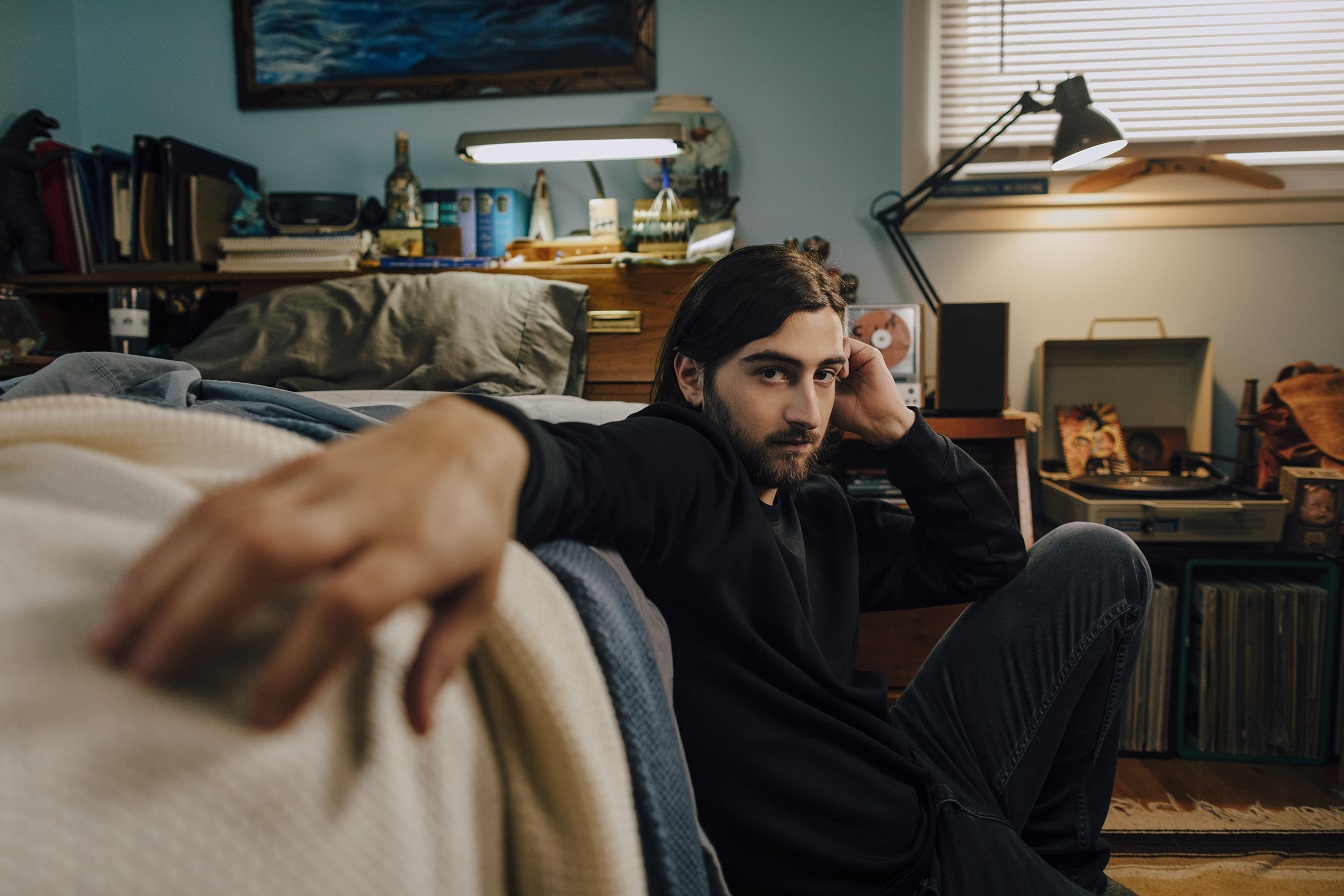
So, it’s certainly been a whirlwind for you lately! How was the Beacon Theatre?
Kahan: I think it’s one of the biggest crowds and definitely one of the biggest theaters we’ve ever played. We haven’t done much theater stuff. It’s been crazy with James, doing all these theater shows.
Do you always call yourself the Jewish Ed Sheeran? Because that’s a great line!
Kahan: Yeah, I’ve been using that line a bunch! That’s a line people really laugh at every night.
It gets a good ride in New York, too; us New York Jews are like, “Yes! We’ve been waiting for you!”
Kahan: New York has a great reception to that every time (laughs). I like to bring jokes in and make some kind of standup shit as part of the in-between banter. I love comedy; my band’s all such ball busters and we’re always telling jokes, so it kind of naturally happens onstage… but like, the Jewish Ed Sheeran line, people will be like, “Oh I love that line!” and then people start calling me that. There’s a fan page on Instagram called “The Jewish Ed Sheeran” and it’s just pictures of me, which I think is hilarious!
You think you're going to go down the route of Bo Burnham one day?
Kahan: (laughs) Hey! Whatever it takes, like I said…
In understanding a bit of your backstory: You’re from Vermont, and you grew up there.
Kahan: Yep! So, I didn’t go to college: I was going to go to Tulane in New Orleans. I got accepted there and was really excited, and then I got the record deal. In the same week, I had to decide whether or not I wanted to do a record deal or Tulane. It was funny, because my parents were obviously super involved in the decision. Usually you expect the parents to be like, “No, you go to college and you study and you get a good job!” But they were like, “Fuck that – take the record deal!”
And that happened, that's four years ago now?
Kahan: Yeah, I just turned 22 on January 1st! New Year’s baby.
So at eighteen years old, you signed a record deal. What was that experience like, signing to Republic Records?
Kahan: I think at that time when I was young, I was like, “Holy shit.” I saw Drake and Taylor Swift, and this was the coolest thing ever. I didn’t know much about the label; I didn’t know anything about the music industry at all. I honestly didn’t really know what a record label did – I’d have it explained to me like, ten times, even after I signed the deal. It was really overwhelming and amazing, and I just liked the history of this label and the people here, and the excitement about all the music going on here. You know, James was here and I was a huge fan of James Bay! I was like, “This is so cool: This is James Bay’s label, and the same guy who signed James Bay wants to sign me!” So it was pretty amazing. I was overwhelmed, and since then I’ve never regretted being here. I absolutely love everything about Republic.
That’s amazing to hear! So, have we heard any of the songs that resulted in that signing?
Kahan: “Sink,” I think? I posted a bunch of songs on SoundCloud when I was making music back in Vermont, and “Sink” was the one song I posted that really got a lot of attention on SoundCloud. It’s what I believe led my manager and Ben Adelson here at Republic to find my music.
Why do you think that song was special to them?
Kahan: For the time, with what was going on in singer/songwriter music – simple guitar and vocal-driven songs like “The A Team” by Ed Sheeran and “Let It Go” by James Bay… Those kind of songs were obviously really popular, and I think that what was great about “Sink” was that it told a story, and it was accompanied by a kind of tender vocal and guitar a la Passenger (I guess). And I think that just connected…
I never really know why my music connects with people; I kind of just write it. I guess they thought it was catchy, and it got stuck in their head. I’m not sure what they were looking at me as, at the time… [Since then] I’ve developed, and I think I’ve ended up being able to bring more to the table than just “Sink,” but I think that was the song that [started it].
Two years later, in January 2017, you released your official debut single, “Young Blood.” What happened in those two years?
Kahan: The first year was probably the hardest year of my life. I thought that I would be releasing an album, like, three days after I got signed. I was ready to go, and it wasn’t like that at all. I was kind of like, “You need to develop and get better at songwriting, and write more songs. You need to make people care about who you are and want to work with you.” And I didn’t realize that; like I said I had no idea about anything in the music industry. I just thought that if you got a record deal, bang! the record’s out and you’re touring the world!
So that’s not at all what happened. I was literally just at home in Vermont, and I would go for two weeks at a time, every month or so, to Nashville or L.A. to write. I would do “writes” and make music, but I was kind of at home and I was really lonely, and really depressed. I live on a huge, 135-acre property. It’s like 45 minutes from the closest actual town, and I was just straight up alone, isolated, in almost like The Shining-type vibe, writing at home with my dogs. I kind of put my nose to the grindstone and wrote songs and developed, and eventually wrote “Young Blood,” which became the single. I then went to L.A. and did some writes with people, and did some writes with Joel Little, who liked the music enough that he wanted to produce the music. So we produced “Young Blood” and released it, and that kind of kickstarted things for me. It really gave me a platform to continue to release music and be a professional songwriter.
People love a good vocal riff.
Kahan: Yeah! Everyone loves like an ascending vocal riff. It’s funny to hear people at the shows, when I sing that line people will be singing along and they’re like, “Oh shit – this part’s coming!” You can hear them gearing up for it, which I love! That song means so much to me. When I first cut the demo, which sounded like shit because I can’t produce… I remember my manager and my A&R, they weren’t super excited about it – it didn’t stand out immediately. I played it for a friend of mine at home, who was also home for a long time – we had connected with each other more, because we were the only people at home who were not in school – and he was like, “You’ve got to release this song! Got to release this song.” So I kind of pushed and pushed, and my producer Joel Little loved it, and eventually it became the lead single!
What’s your experience like, working with other songwriters and producers at so-called “songwriting camps” and the like?
Kahan: I haven’t done many of them, but I have done a lot of the shotgun sessions where you go in for a day, five days a week, with five different people you’ve never worked with before. I became very burnt out after doing that for a while, and I started to lose my passion for writing songs because of the constant criticism of myself, the constant struggle to get someone to understand what I want to say in six hours, and just having to kind of force shit out of people just to get the session over with, instead of actually making music with someone I know understands my vision for things.
When I listen to you, what excites me so much is that I can tell that these songs come from you.
Kahan: Thank you; I think what my value is, is my ability to write honest music. I think that if I were to have songs pitched to me, then I don’t think I’d be good enough to stay in the game with that. I think that my honesty is my greatest asset, and my ability to write songs from the heart is my greatest asset, and I don’t think that that requires more than another person guiding me along. That’s my opinion on things and that’s the way I see myself. I don’t know if I’d be able to do the ten people pitching a song, you know? I wouldn’t want to lose that control, because songwriting is so important to me and if I was to lose that or if I didn’t have that, then I wouldn’t want to do this at all. That’s just my opinion.
I think what my value is, is my ability to write honest music.
“Hurt Somebody” is an incredible song on its own, and then they tacked Julia Michaels onto it and it blew up. What was that experience like?
Kahan: Yeah, it was kind of one of those stories that sounds shallow, but she just sent me vocals through an email, and she sounded amazing obviously. We met one time before the song had come out, in Napa at like a wine country performance. So she tacked the vocals on and sounded great, brilliant voice. It matched really well with mine. So we packaged it and released the song.
It was that simple. People expect this crazy story where you meet in the studio and you both sing into the mic and look into each other’s eyes, but that’s just not how it really happens a lot of the time. It’s kind of funny – a lot of people think Julia and I wrote that song together, but no — that song was out already!
It’s like a remix.
Kahan: Yeah, essentially – but it’s like when the remix does way better than the original song! (laughs)
I remember when your debut EP came out, and what was so exciting about that record was that it’s very honest. What did that debut represent to you at the time?
Kahan: It represented, I think, just my journey. It opened the doors for me to be as honest as possible, for as long as I wanted in the music industry. Before that, I had released a bunch of songs and I wasn’t trying to be anybody else, but I was testing the waters to see what would work and what people would connect with. I was worried that being too honest and being too specific could alienate people. Seeing that debut, where I was just kind of bearing myself to the audience and on the record… I’ve seen people be like, “Oh shit, I feel this way too!” and really connect with it. It gave me the inspiration to keep being honest, and to kind of chase that, because that’s something I think I’m trying to market myself as – is being honest.
I think the first song you released after that was “Come Down”? That story is really interesting; how did it come about?
Kahan: It was written here in New York City, which is cool because I haven’t written a lot of songs in New York City. There’s something really organic about the city, and I was here for a writing trip or recording or something… A couple friends of mine asked me to come over to their house and smoke weed with them, ‘cause their parents were gone. This was like, smoking the most weed in my life – I was super down with it. I think I was 19, and I went over to this girl’s house… We all smoked, and they had really bad anxiety attacks and freaked out. The next day, in a very vapid, shallow singer/songwriter way, I… told the co-writer Scott Harris, and we decided to write about that. So we created a little storyline about this experience I had, and used that as a platform to write a story. It didn’t happen exactly as the song is written, but it was just a kind of memory of the night before that inspired the song.
I think it doesn't matter whether it's true or false sometimes, as long as what it brings to the table is real, and that's real emotion: Wanting to connect and to help somebody else.
Kahan: Exactly.
And then, at the end of last year, you released “False Confidence,” which is so different with its marching beat.
Kahan: It was written a while ago – it was written at a songwriting camp in France in late 2016. At that time, I loved Milky Chance and Avicii, and I was really into that idea. I was starting to realize that I had to brand myself in some way, and have some kind of aesthetic. I realized it wasn’t enough to just have songs — at least, that was the message I was getting — and that was making me really anxious and uncomfortable, and I started to kind of lose my sense of identity in that. So I wrote “False Confidence” at the camp and put that kind of marching beat in there, and that’s how the song came to be.
It sounds like throughout these past four years you've been just writing and developing and growing, and putting down these experiences and trying to tell a story. I get the sense that, though the songs haven't been written in the exact order that they've been released, they still are true to you in terms of how they came out.
Kahan: Yeah, absolutely. I think there is a story with all these songs: They all fit together like a puzzle.
And the puzzle is you!
Kahan: They represent this time period in my life. They create a really good image of myself in these last four years. I don’t necessarily care about the order of them, as long as they’re telling a story.
This brings us to 2019, where you’ve introduced your debut album to us with “Mess.” Why are you introducing your debut album with this song?
Kahan: I just think this song is a total representation of my strengths as a songwriter, and where I’m at and what I think the record is going to be about: The journey; the struggle with depression; the landscape of the world I’m in right now. I think when you listen to the record, it kind of embodies the whimsical nostalgia and fear that I have right now going on in my life with this crazy journey that’s happening.
I think when you listen to the record, it kind of embodies the whimsical nostalgia and fear that I have right now going on in my life with this crazy journey that’s happening.
I was speaking to someone else about this recently… Just because you can go on this wild ride, it doesn't mean depression doesn't still hit you. It's a dream come true, but that doesn't mean your mental health is at 100 percent.
Kahan: No, absolutely not, and what makes it worse is the pressure to not feel that, because you’re living your dream, and the guilt that comes with being like, “Well I’m having this crazy thing happen but I still feel like shit about myself, or I still can’t get out of bed in the morning, or I don’t like the way I look… but why not? I have all these people that care about me, and people who listen to my music and this success.”
You know? Like, fuck you for feeling bad about yourself – which is why I think it’s so much harder for musicians and people in a situation where they’re succeeding, to come out and be open about how they feel. I’m not going to sit here and pretend that my shitty feelings are gone just because I’ve had success. I think that doing that sets a dangerous precedent for other people. Like I said, honesty is so important to me, and I want to be as honest as possible with everybody. I hope that people can be more honest with themselves in hearing my music and understanding what I was trying to say.
I’m not going to sit here and pretend that my feel my shitty feelings are gone just because I’ve had success.
Self-medication is the wrong term, but how do you work through these experiences and what you’ve been going through?
Kahan: Songwriting is one of them; I see a therapist when I can. I used to take Prozac, but it made me lose, I think, what I felt like was a necessary emotion to be a songwriter. It wasn’t that everything was good; I was OK with everything. It was weird to feel like that, and I was cognizant of not really feeling any intense emotions, which I think inspire a lot of my songwriting. And so I don’t do that anymore, but I see a therapist and I try to run, and I talk to friends and my parents, and I write songs, and I read, and I write in a journal.
I try to do as much as I can. On the road, it’s really tough; when you’re driving a spinner van across the country, it can be hard to take care of mental health. It’s a learning process for me, so I’m kind of learning how to take care of myself and feel better about things. I think writing songs and seeing people connect with them, and having people reach out to me about how they feel is super therapeutic. It’s really cool to see people feel better about themselves through my music, especially because I was trying to do the same thing for myself. It’s cool to have that be worthwhile for other people and not just me.
It’s a learning process for me, so I’m kind of learning how to take care of myself and feel better about things.
I'm glad it's working.
Kahan: Day in, day out, things change. Some days I feel like shit; some days I feel great. That’s just how it is, but songwriting is always consistently therapeutic for me.
You'd rather have the ups and downs than have everything just be a straight line.
Kahan: Absolutely! I think the straight line sucks; that’s stupid, and then you make music that’s a straight line, and no one wants to hear that. I like to write music that sounds good to me, too. Some musicians hate their own music, but I like to actually enjoy my own songs. I think that if I was a straight line all the time, I wouldn’t enjoy anything. I’ve written some of my greatest songs, in my opinion, in my lowest times, and some of my worst songs in my highest times. I like the unpredictability of it.
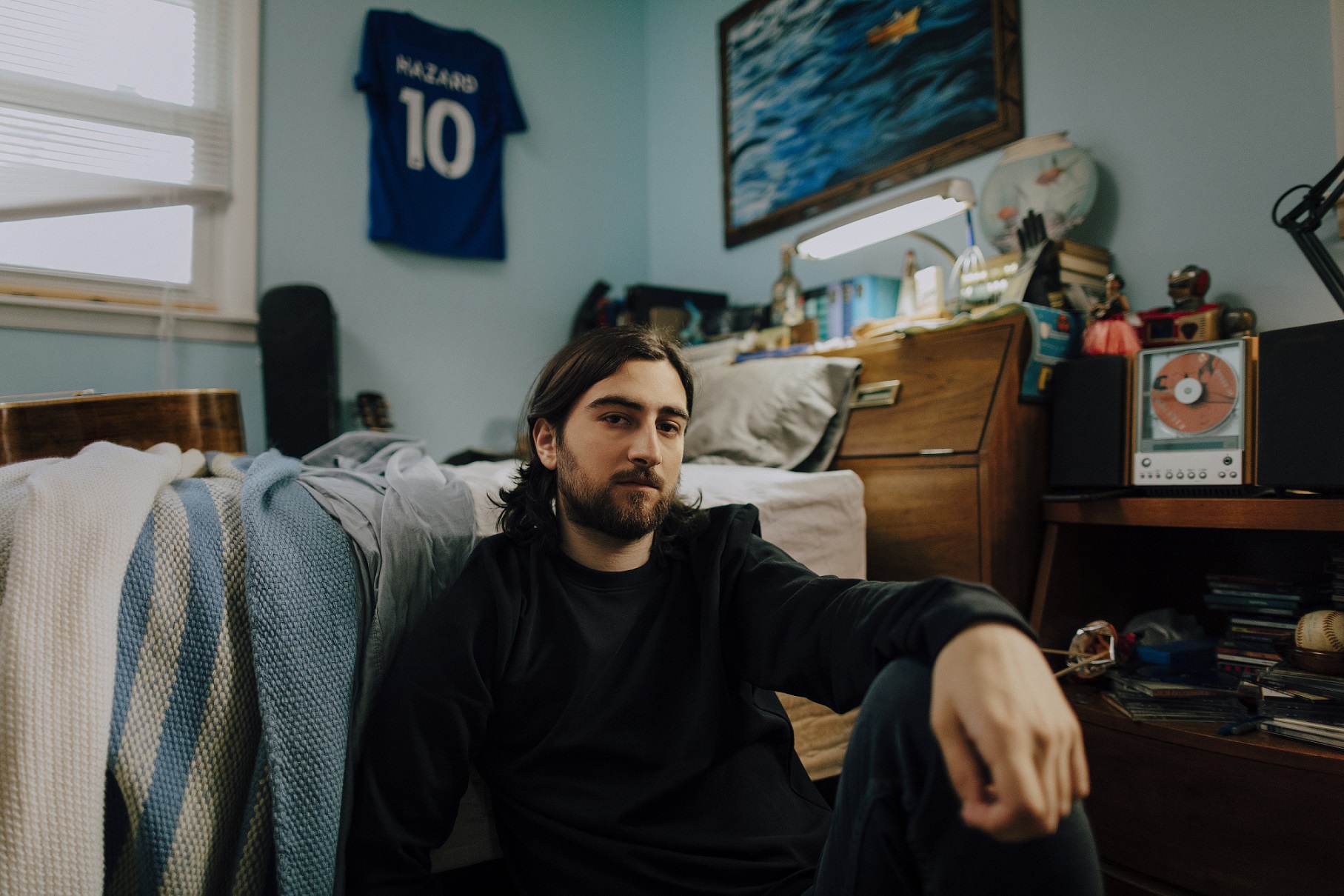
Have any of these songs taken on new meaning to you since their release?
Kahan: Yeah, a little bit: “Mess,” I kind of wrote in a time when I was trying to escape tour lifestyle and trying to be back home. And when I was home, I was missing tour a lot; now, I’m escaping via tour, a little bit, from the real world. It’s definitely taken on a different meaning: The songs change, and sometimes they become the fans’ songs more than mine. I don’t really relate to “Hurt Somebody” so much anymore, just because I wrote that at a different time my life. When you play something enough, you lose a bit of perspective on it. Some songs, you lose the connection you had when you wrote them… they become the fans’ music, instead of your own.
Do you have any favorite songs off the new album?
Kahan: Yeah, a song called “Carlos’ Song.” It’s a song for a friend of mine who died, whom I loved and I kind of lost touch with before he died. I really struggled with grieving his death for a long time, and I wrote that song. It embodies everything I feel, and it really – I think – beautifully captures his memory. I’m really excited for people to hear that song; I think that’s probably my favorite song on the record.
So, what’s the goal now?
Kahan: I don’t know; I’ve had so many different goals that I’ve surpassed. and then I’m like, “Well now I’m not happy, and I want this!” so I don’t know! I don’t think there’s any goal that’s going to be the last one, but I think that if there’s any goal I can set for myself for this year, it is to sell out some shows, get my live show sounding good, and just keep building this fan base and keep writing these songs – and hopefully have a record that people really like to listen to, and want me to play.
How do you identify your music? Do you identify as a singer/songwriter?
Kahan: I think it depends! Like singer/songwriter, and there’s kind of some alternative folk stuff going on, and a folk-pop thing, and then the kind of more bandy, Edward Sharpe sonic stuff – so that’s hard. I think it changes; I don’t like to really put myself in a box too much, but I think the singer/songwriter is kind of the best way to encompass all the sounds.
It seems like, between your influences and your music, that you have quite an alternative taste! Who should people be listening to these days?
Kahan: Mt. Joy, ASAP! I listen to Mt. Joy all the time. Everywhere you go, listen to them… Pinegrove are amazing… Sam Fender is dope; Hozier always. King Princess, I’m sure you’ve heard. Juke Ross is a really great songwriter and a beautiful singer. Lastly, The Brook & The Bluff – they’re an up-and-coming soul/folk band from Alabama, I believe, and they’re fucking dope. They remind me of Mt. Joy a lot; right now they’re on tour with this band, Ripe, that I really like. You should check all these guys out!
That’s so great! So you're merging all these things at once, and at the same time you're also a guy who loves music.
Kahan: I love listening to music! I love it, and I love the way it makes me feel. It’s the only thing I’ve ever heard or seen in my life, that can completely take me somewhere else – because I’m thinking all the time, and I don’t think anything can trick my mind. Nothing can take my busy head out of myself; I can’t stop thinking about my feelings and shit, I’m always in my head. When I listen to music, it just transports me away – and that’s really cool. There’s not a lot of things that can do that, so it’s something I value.
— — — —
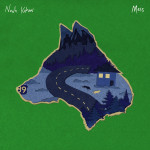
Connect to Noah Kahan on
Facebook, Twitter, Instagram
Discover new music on Atwood Magazine
? © Josh Goleman
:: Stream Noah Kahan ::
:: Noah Kahan 2019 Tour ::
^ w/ James Bay || * w/ Dean Lewis
3/30 – Portland, OR – Arlene Schnitzer Concert Hall^
3/31 – Vancouver, BC – Thunderbird Sports Centre^
4/3 – Seattle, WA – Paramount Theatre^
4/6 – Frankfurt, Germany – Gibson*
4/7 – Zurich, Switzerland – Kaufleuten*
4/8 – Munich, Germany – Backstage Werk*
4/10 – Hamburg, Germany – Docks*
4/11 – Berlin, Germany – Astra Kulturhaus*
4/13 – Amsterdam, Netherlands – Paradiso*
4/14 – Brussels, Belgium – Ancienne Belgique*
4/15 – London, UK – O2 Shepherd’s Bush Empire*
4/16 – London, UK – O2 Shepherd’s Bush Empire*
4/18 – Glasgow, UK – St Luke’s*
4/19 – Manchester, UK – O2 Ritz*
4/21 – Dublin, Ireland – Vicar Street*

